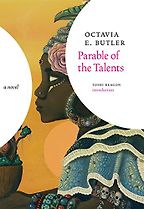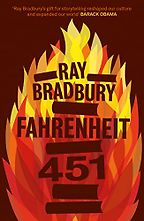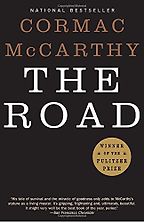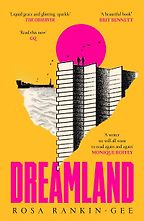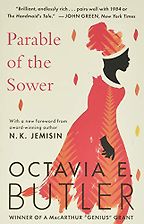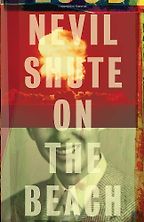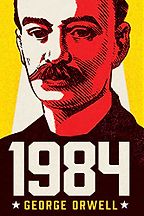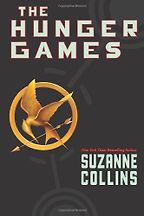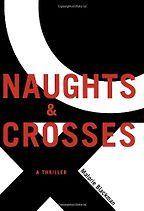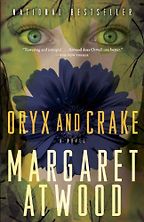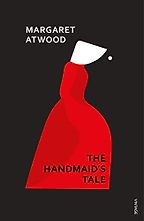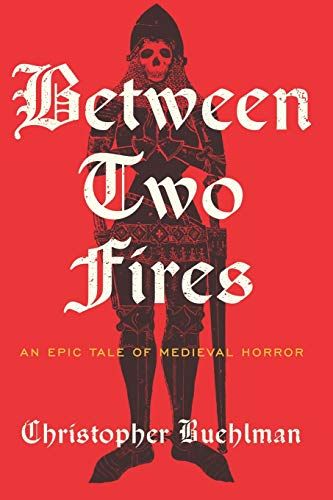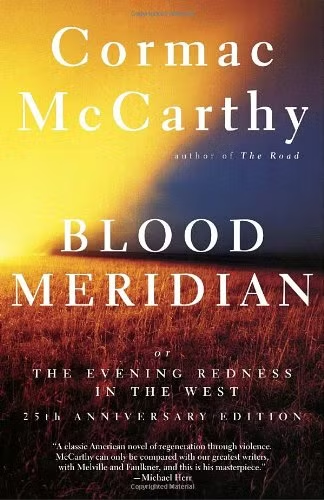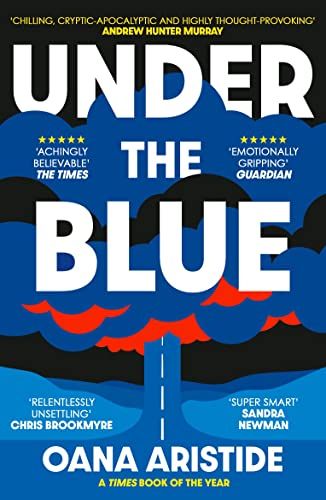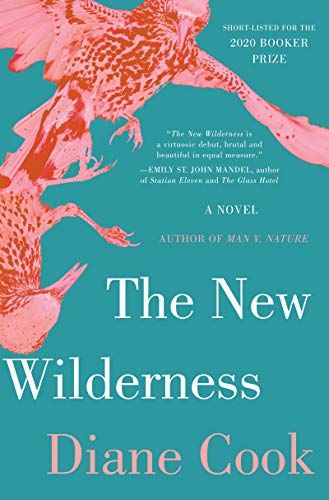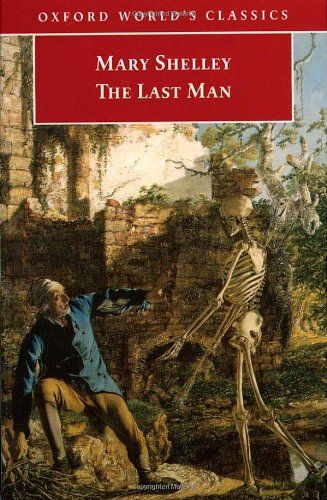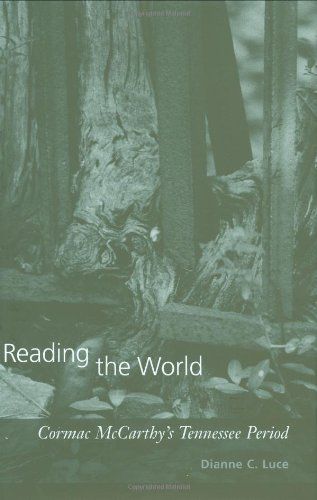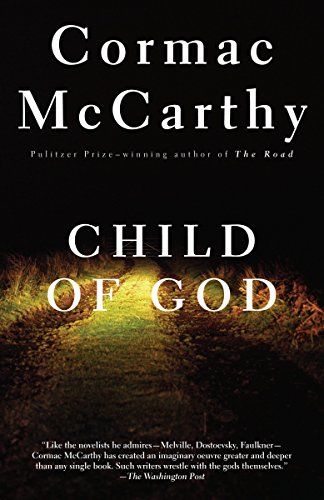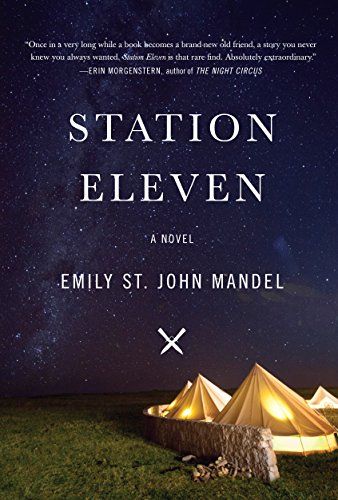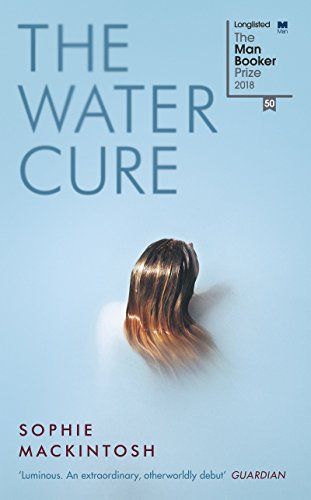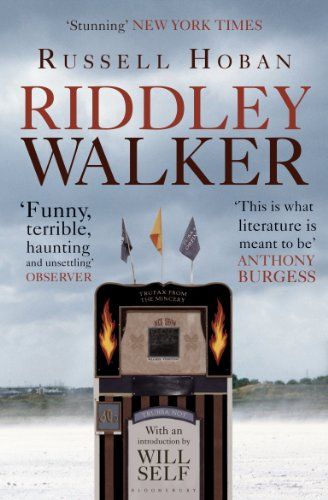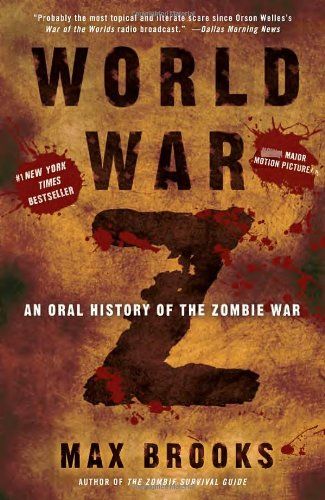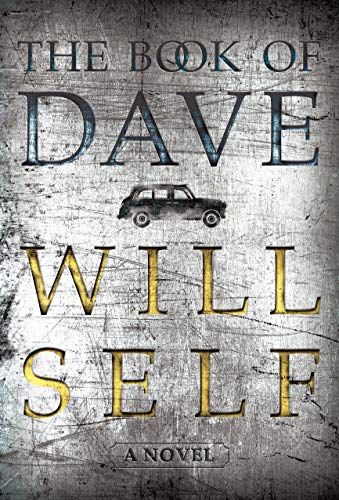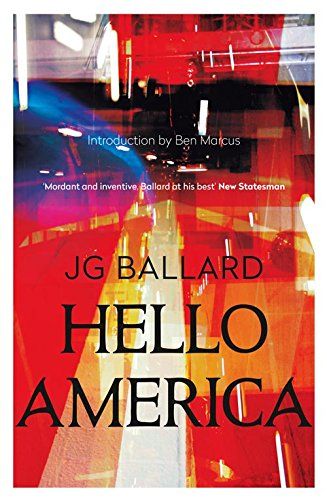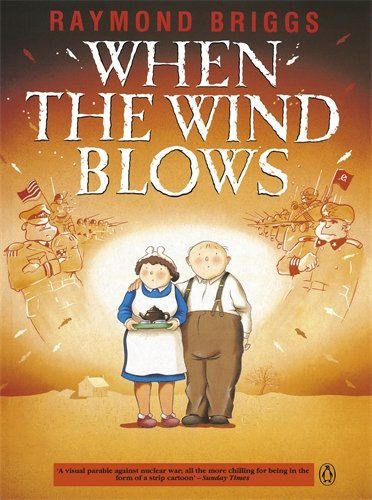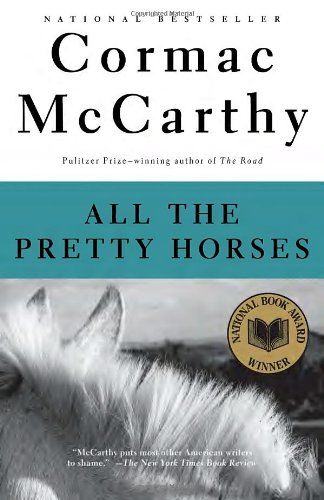The Best Dystopian Novels
Last updated: January 21, 2026
Dystopian novels are a form of speculative fiction that imagines a future in which disastrous forces—political, technological or climatological—have changed the world for good. Sometimes these changes might be cataclysmic, leaving society struggling to survive. Other times the changes might be more subtle; these books imagine near-futures in which the consequences of one or two small changes spiral outwards.
Dystopian novels, which are named in reaction to Thomas More's imagined Utopia (1516), share thematic ground with post-apocalyptic novels and science fiction set on Earth. Probably the most famous examples of the genre are Margaret Atwood's The Handmaid's Tale and George Orwell's 1984.
“The main character of the first book, who is also one of the main characters in the second book, is growing up in this very slow climate-apocalypse-on-Earth society. The US is really falling apart and she is struggling to survive. At the same time, she is looking at the stars and she is creating her own religion, essentially, arguing that our destiny is to go out and colonize the stars. This is an argument that exists in real life, and I criticize it in my book, but I think Butler presents and frames it really well: why someone growing up in a terrible world like this—more terrible than ours but very similar—would still have hope for a future in space. Then, in the second book, Parable of the Talents, the main character’s daughter really presses her on this and says, ‘Is this what we need to be focused on? There are people starving on Earth. Why don’t you pay attention to me, your own daughter, instead of this dream of space?’ And I think those are also questions worth asking.” Read more...
The Best Sci Fi Books on Space Settlement
Erika Nesvold, Physicist
Fahrenheit 451
by Ray Bradbury
Ray Bradbury's 1953 dystopia imagines a future in which books and reading have been outlawed, and 'firemen' have been tasked with locating and censoring (burning) all remaining reading material. This bitterly satirical novel was written during the 'Red Scare', in response to the political repression of the McCarthy era. It is widely used as a set-text in high school English departments.
The Road
by Cormac McCarthy
🏆 Winner of the 2007 Pulitzer Prize for Fiction
🏆 Winner of the 2006 James Tait Black Memorial Prize
🎥 Adapted into a major Hollywood film
“The Road is a very spare novel by Cormac McCarthy. Humanity has been wiped out, for the most part. There’s a man and his son traveling on a road to try to get to where it’s rumored that sprouts of civilization are starting to grow again. It’s a very minimalistic book. It’s very sparse and elegiac, just with those two characters.” Read more...
Elliot Ackerman, Military Historians & Veteran
Dreamland
by Rosa Rankin-Gee
Rosa Rankin-Gee's eerie second novel is set in a near-future England in which the south coast is in the process of being claimed by rising sea levels. This looming crisis serves as a backdrop to a tenderly-told love story between Chance, a teenage girl living in poverty in crumbling Margate, and Franky, a middle-class humanitarian worker with a mysterious past. Dreamland is currently in the process of being adapted into a six-part series by the BBC.
“The Parable of the Sower is the origin story of Lauren Oya Olamina, who has this disability of feeling other people’s feelings. Her boundaries are really gone. She’s suffering from this disease and living in a gated community, as the world around the gated community slowly crumbles away. I think that one of the things that makes it so compelling is not just that there are these horrible things happening, but that they are horrible things that are not that far removed from what’s going on now.” Read more...
The Best Books for an Introduction to Octavia Butler
Nisi Shawl, Novelist
Annihilation
by Jeff Vandermeer
“I like that Annihilation is set on a planet that’s very recognizably Earth, but also frighteningly different. We may not all turn into monsters, but I suspect the future might be weirder than we realise.”
The best books on Climate Change and Uncertainty
Kate Marvel, Scientist
“The themes that underlie the book are reasonably positive: the way the characters deal with their duty to each other, at a community level – in the story of post-apocalyptic survivors eking out a civilised existence – and what technology means to us. It explores questions of how much faith we should put in computers. It has a lot of value for the decades ahead.” Read more...
“It’s the quintessential Cold War story. It’s utterly haunting. It captures so well the madness of mutually assured destruction. By not playing it out at the level of the generals and the White House Situation Room, but instead focusing on one submarine crew and the civilians they interact with, it brings it down to the personal level. It shows the craziness of this mutual suicide pact that the entire world willingly or unwillingly signed up to.” Read more...
Nineteen Eighty-Four
by George Orwell
🎧 Winner of an AudioFile Earphones Award for a truly exceptional audiobook
“The book looks at how order and disorder co-habit. Orwell, without ever having gone to the USSR, understood it from the outside brilliantly.” Read more...
The best books on Totalitarian Russia
Robert Service, Historian
“It’s been hyped as the next big thing. They’re making a movie; it’s selling massive numbers of copies in America, and that’s how I came to it. As a commercially minded author I always look at what they’re doing and why they’re successful and I’m very often quite disappointed. In a way this is a more action-based version of Noughts and Crosses.” Read more...
Books for the Reluctant 12-Year-Old Reader
Robert Muchamore, Children's Author
Noughts and Crosses
by Malorie Blackman
It’s set in a society where it’s a reverse South Africa and the blacks are quite dominant and the white people are slaves, and then you’ve got these star-crossed lovers, a black girl and a white boy…
“It’s a really strange novel…it’s on my list because I’ve never seen anything like it. The words in the title, they’re animals, but they actually refer to people. One of them, Crake, is a scientist, a genetic engineer; and essentially, he’s a sort of evil villain character. He’s really, really interesting. He engineers a great pandemic, which wipes out most of the world. And he is in a relationship with this very ethereal woman, who we never really get to know very well, who is known as Oryx. It’s a difficult book to summarise, because it’s very hallucinatory and weird! Every aspect of it is brighter than life, somehow. The basic plot follows a man who in the narrative present is called the Snowman, and he lives in a post-apocalyptic world. He’s surrounded by these very innocent humans who seem a lot like the Eloi in The Time Machine by HG Wells” Read more...
The Best Sci-Fi Romance Novels
Natasha Pulley, Novelist
The Handmaid's Tale
by Margaret Atwood
🏆 Winner of the 1987 Arthur C Clarke Award for Science Fiction
Published in 1986, The Handmaid’s Tale is a haunting epistolary novel narrated by Offred, a woman living in a future America where environmental and societal breakdown have led to the establishment of a fundamentalist Christian theocracy. In Gilead, women have been stripped of their fundamental rights and reduced to their reproductive potential. Lesbians and other 'gender outlaws' are executed, as are doctors who conduct abortions.
The Handmaid's Tale was recognised as a modern classic and first adapted into a film in 1990. It reappeared in the headlines (and the bestseller lists) in the aftermath of Donald Trump’s US electoral victory, after which time the handmaid's bonnet became an icon of the feminist protest movement. More recently it was adapted as a multi-Emmy Award-winning television series starring Elisabeth Moss, who also narrates the audiobook of The Handmaid's Tale.
The sequel to The Handmaid's Tale is The Testaments, set 15 years later.
“Atwood takes all the hard information about gender inequality that she sees around her and then turns it up a few notches.” Read more...
The best books on Alternative Futures
Catherine Mayer, Politician
“This is a really interesting book. It had quite an unconventional publishing journey, but it became something of a cult hit. It’s not a traditional post-apocalyptic book, but it tells the story of an excommunicated knight turned brigand. He comes into the company of a young girl who might be a saint, and they travel through medieval France during the Black Death. The whole book is like walking through a Hieronymus Bosch painting. You have a chaotic, magical disintegration of the world, which everyone is absolutely sure is the end of days. We, the readers, know it is just a plague, that things are going to continue. But the characters feel like everyone is going to die: the end of the world has come.” Read more...
The best books on The End of the World
Paul Cooper, Historian
“It’s somewhat loosely based on the history of the Glanton Gang, who were a bunch of murderous outlaws in the southern US in the 19th century. McCarthy is using them as the occasion to think about how one chronicles an unspeakable history, or how one can reckon with a nation that comes from chaos, and what that means for the nation itself…In Blood Meridian, there really is no system at all. If there is one, it’s a kind of debased violent impulse, which is why the novel is both perpetually on the verge of an explosion of violence, and also often, frankly, quite monotonous. Because how else can you depict unsystematized chaos in the long form? Blood Meridian has these 18th-century-style subtitles for its chapters which summarize what is about to happen, and to me these summaries indicate the utter inevitability of the world that McCarthy is describing. By the time you read the chapter itself, it’s effectively already happened, it’s predestined. And the novel ultimately moves towards this kind of dance of the devils. It ends in total bacchanal, with Satan at its centre. It gravitates to what it has always desired, which is true chaos. I can’t mention this novel without mentioning Judge Holden, who is one of the most monumental antagonists in all American literature — a giant, hairless demon in human form, who is present at all sites of human violence.” Read more...
“It’s the dual narrative of an artist called Harry who—thanks to a combination of grief and absorption in his painting—doesn’t realise that a pandemic is happening around him in London. He emerges from this ‘deep-dive’ into a devastated landscape, and, later, embarks on a cross-Europe road trip, as he tries to reach Africa with two fellow survivors, who are sisters. This narrative is interwoven with the story of two researchers in the Arctic Circle discussing an artificial intelligence thy have developed. They’ve been providing this AI with information about human history and culture, in order for the AI to predict the future. There’s a race against time, as these two stories happen simultaneously. There’s not a false note. It’s so well done. Beautifully written, filmic.” Read more...
The Best Near-Future Dystopias
Rosa Rankin-Gee, Novelist
“It’s a very humane portrait of motherhood and what it means to be human. It’s a future shock novel, an urgent novel reflecting where we are and what’s happening in society now. It’s wonderfully imagined and written, particularly in how it deals with intimate relationships, but also how it handles broader themes: the characters are driven by each other, and by the environment. “ Read more...
The Best Fiction of 2020: The Booker Prize Shortlist
Margaret Busby, Publisher
“One of the things that I actually find paradoxically comforting about The Last Man is that it’s so much worse than even the worst predictions about coronavirus. But while The Last Man is a work of fiction, it does capture some central ideas about epidemics that were ubiquitous in the early nineteenth century.” Read more...
Books on Living Through an Epidemic
Alex Chase-Levenson, Historian
“There’s no biography of Cormac McCarthy, but I was trying to think what would be the one thing I’d recommend to read about McCarthy, and Dianne rises to the top—this book in particular. In it, she covers the Southern novels, up through Suttree, and she unpacks all of this historical background. It’s a masterful reading.” Read more...
The Best Cormac McCarthy Books
Stacey Peebles, Literary Scholar
“It’s an elegant little novel about decidedly inelegant subject matter. I’ve taught it a number of times and I just love how it opens up for the reader. It’s certainly not pyrotechnic or linguistically excessive in the way that both Blood Meridian and Suttree are, but there’s so much going on with it. The reader really has to negotiate her own reaction to the character as the character changes over the course of the book.” Read more...
The Best Cormac McCarthy Books
Stacey Peebles, Literary Scholar
“An absolute classic of the genre. One of the things that’s superb about this book is how it interweaves timelines and flashbacks. The contemporary world has a strong presence in it, which makes the near-future dystopia feel proximate and plausible. The meeting of post-apocalyptic and contemporary life makes you feel nostalgic for the world we’re in, and that’s a wonderful thing.” Read more...
The Best Near-Future Dystopias
Rosa Rankin-Gee, Novelist
“A bewildering and disturbing fable that will appeal to those who enjoy ‘feminist dystopia’ fiction like The Handmaid’s Tale and The Power.” Read more...
Editors’ Picks: Highlights From a Year in Reading
Cal Flyn, Five Books Editor
“Riddley Walker is one of those books that awoke in me a total fascination with dystopian and post-apocalyptic titles. It is set a couple of thousand years in the future, following a nuclear war, and is written in an imagined dialect that has evolved after the collapse of civilisation. The main character, Riddley, is the narrator and his account of discovering and trying to make sense of an attempt to recreate a powerful weapon from an earlier time makes for a riveting read.” Read more...
Forgotten 20th-Century Classic Books
Rebeka Russell, Publisher
“I’m going to say something stupid, because, yes, of course, it was a best-seller that was turned into a film starring Brad Pitt. So it’s hardly unknown. But when I started reading it I thought: why did nobody tell me how good this book is? Fundamentally, I think so many people think: ‘zombies are not for me.’ I’m one of them. But this book totally transcends that category. The realism is extraordinary; it’s a wild feat of imagination.” Read more...
The Best Near-Future Dystopias
Rosa Rankin-Gee, Novelist
“There is a genius idea in this book … what I find very funny about his central conceit is that you have this misogynistic taxi-driver called Dave who rants away and his kids have been taken into custody. He is like one of those cabbies we have all had who sound off these ignorant, opinionated views as you are stuck in the back as a captive audience. Dave writes out his rant on metal so it survives in the post-apocalyptic world. And it is found, a bit like a Dead Sea scroll, and society has organised itself around these mad opinions. So, essentially, it is a satire on religion, the way in which religious authorities seek to impose absolute meaning on ancient texts even though society is drastically different from the context in which those texts were written. It’s a hilarious idea and one that rightly pokes fun at how religious dogma, conjoined with ignorance and fear, will always seek to impose a fixed meaning on something all writers know to be true – the impossibility of single interpretation and the inherent instability of all textual meaning.” Read more...
James Miller, Literary Scholar
“This is a vision, relevant to our discussion of apocalypse, of a century or so from now when climate change has made most of the American continent uninhabitable, with large parts of it covered by rainforest or desert. The ideas it puts forward are presented in the context of an adventure story, of a group of Europeans who explore this almost abandoned continent and come across various groups and tribes who live in the ruins or jungles. Ballard was a tremendous admirer of surrealist painters – he wanted to be a painter himself but didn’t have the talent, he used to say – and the novel is a tremendous gallery of images, beginning with a ship pulling into an empty New York, where everything turned gold by the sun.” Read more...
Critiques of Utopia and Apocalypse
John Gray, Philosopher
“The anti-nuclear message of When the Wind Blows is such an important one that I think Briggs was right not to sugar-coat it.” Read more...
The Best Science-based Novels for Children
Alom Shaha, Science Writer
“All the Pretty Horses takes place in a modern period, post-World War II. It asks whether the older generation of men will be able to serve as good role models for the younger generation. McCarthy seems to ask whether his main character, John Grady, should follow in the steps of his father or are there other standards of masculinity that might be available to him?” Read more...
Susan Kollin, Literary Scholar
The Best Post-Apocalyptic Novels
Do you take perverse pleasure in reading about the end of the world as we know it? Us too. Here, we’ve gathered together a selection of the best post-apocalyptic novels ever to appear on Five Books to help you choose your next horrifying, exhilarating literary parlay into armageddon.
The Best Cormac McCarthy Books, recommended by Stacey Peebles
From All The Pretty Horses to Blood Meridian to The Road, American novelist Cormac McCarthy (1933-2023) was a titan of literary fiction for his philosophical, violent, often deeply moving novels. Cormac McCarthy expert Stacey Peebles introduces us to the author’s oeuvre—and tells us that despite its apocalyptic bleakness, The Road is actually McCarthy’s “happiest book.”
